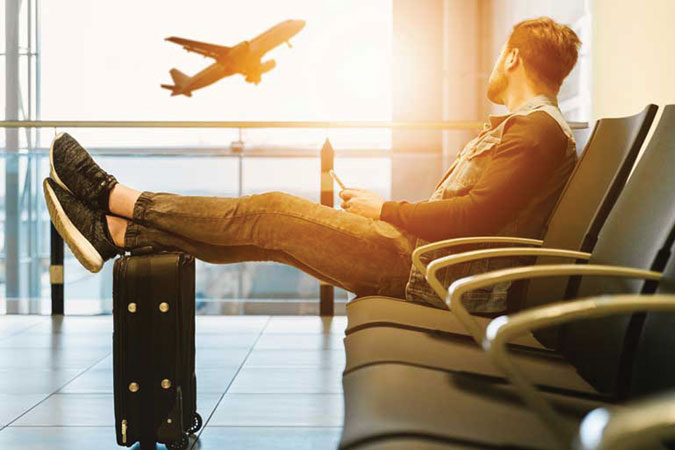In the era of tax reforms that are meant to simplify life for taxpayers, streamline tax collection effort. and enhance revenues for government, the Philippine travel tax that is imposed on departing Filipinos for abroad (with exemptions) in the amount of P1,620 per person is outdated at best and illegal at worst.
This travel tax was first imposed in 1956 when Magsaysay was our president and Singapore was part of Malaysia. Its purpose was to prevent unnecessary foreign travels and to conserve precious foreign exchange. It was meant to promote domestic tourism that required only pesos, not dollars.
At first, the tax was a fixed charge based on the cost of the ticket. In a series of Presidential Decrees up to 1984 when Marcos was still the President and Southeast Asia’s first rail line LRT 1 opened, it was amended to travel class whether business or economy, to a percentage of the fare with a cap, until it ended up with what we have today in 2020 — P1,620 for economy and P2,700 for business.
There is no basis for these amounts. Neither is there a rationale anymore on their imposition on the traveling public. It used to be imposed on arriving passengers too. We have a liberalized foreign currency regime and can freely travel with hard foreign currency or credit cards. Fares today can be as cheap as one peso gimmicks or as expensive as a car but the tax remains the same. It is inflexible and government actually loses revenues that may be collected if a well-studied tax base is used.
For example, levying 1% on the base fare is a start. For those who can afford higher ticket classes, the tax is proportionately higher. It will be effective and progressive. The reduced rates and exemptions can all be removed. The travel tax can be certain and simple.
This single tax is collected by a single agency, the Tourism Infrastructure and Enterprise Zone Authority (TIEZA). It is a highly inefficient manner to raise revenues. By design, it should be a systematic way for agents to collect and remit to the Bureau of Internal Revenue directly using the same channel of payment.
Travel tax by TIEZA is administratively costly, a waste of time, and burdensome for travelers who end up queuing one more time online or at TIEZA counters. It is more red tape for exempted persons to secure an exemption certificate for such amounts or to ask for their refunds that worsen the travel experience. It is also prone to abuse that requires a separate effort by state auditors that eats up additional resources. Remember the TIEZA Teo controversy.

There is also a problem with how the travel tax is allocated. Its collection is usually justified for the promotion of tourism projects (50% goes to TIEZA) and the support of education (40% goes to the Commission on Higher Education) and culture (10% goes to the National Commission for Culture and the Arts).
Tax reform is ready to remove these cross-subsidies and directly allocate the amounts in the agency’s national budgets for accountability, transparency, and utility. It will simplify the national accounts and lessen compliance issues.
What is not obvious is that from the 50% share of TIEZA, fully 45% of the funds are used for administrative expenses. It is a waste of taxpayer’s money. The better solution is to provide an agency budget for TIEZA that is determined by standard planning cycles and expenditure programs that all other government agencies undergo. It will make it fair.
The track record for the 55% for tourism projects needs to be checked. Government does not spend scarce resources on investments that the private sector will gladly enter into. Tourism is such an industry — markets are free, barriers to entry are low, and margins are high.
There is the Constitutional right to travel. Article III, Section 6 of the Constitution states that “The liberty of abode and of changing the same within the limits prescribed by law shall not be impaired except upon lawful order of the court. Neither shall the right to travel be impaired except in the interest of national security, public safety, or public health, as may be provided by law.”
The imposition of a fixed tax on traveling Filipinos financially burdens the taxpayer. This is especially true for short international destinations on budget airlines for cost-conscious passengers whose plane fare may be less than the tax. It is regressive and anti-poor. It is administratively inefficient and downright wasteful with one tax being collected by one agency that relies on it to fund its operations. No wonder it makes it difficult for travelers to claim exemptions. It is unfair for state agencies for the separate effort required and to TIEZA that requires a regular budget.
It is time to abolish an archaic tax.



